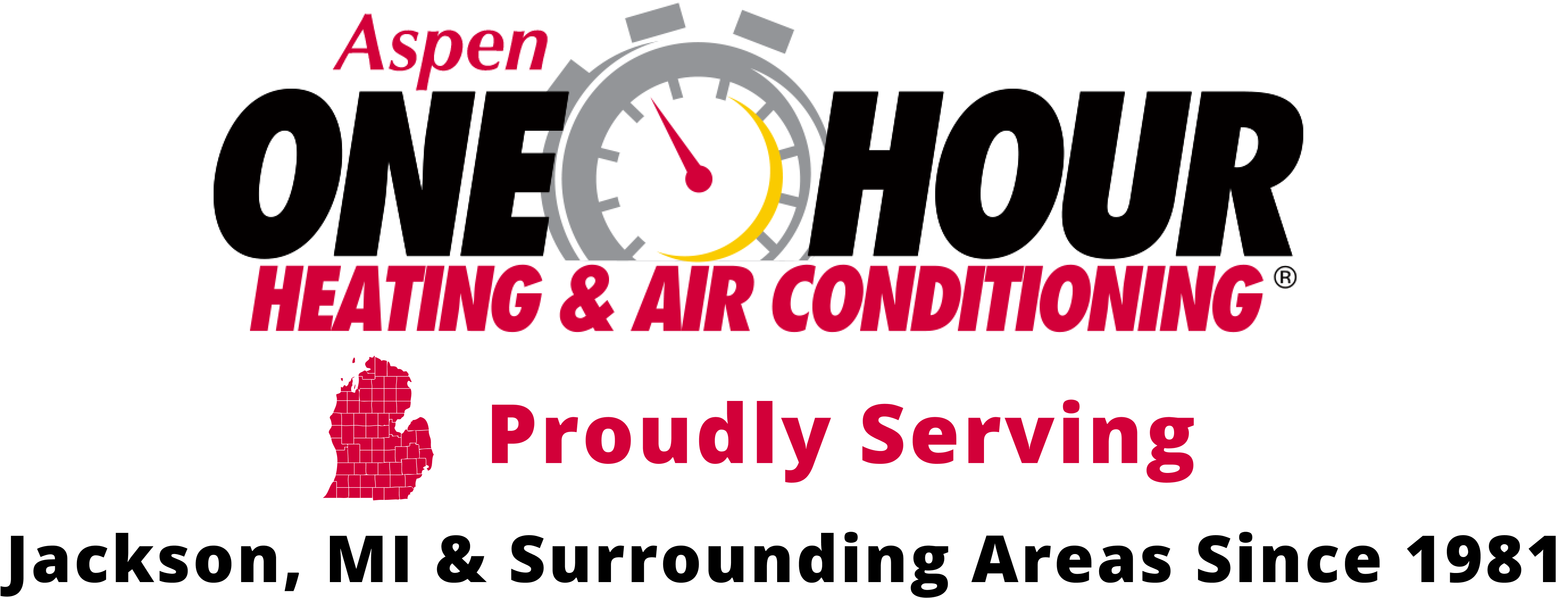Michigan homeowners are always looking for ways to cut down on heating and cooling costs while staying comfortable through the state’s extreme seasonal swings. From freezing winters to hot, humid summers, having a reliable and efficient HVAC system is essential. One option that’s growing in popularity is geothermal heating in Michigan.
But is it really worth it? In this guide, we’ll take a deep dive into what geothermal systems are, how they work, the benefits and challenges of installing them, and whether they’re a smart investment for Michigan homes.
What Is Geothermal Heating and Cooling?
At its core, geothermal heating in Michigan takes advantage of the stable temperature below the earth’s surface. While the air above ground can fluctuate dramatically — from below zero in January to over 90°F in July — the ground a few feet down remains around 50–55°F year-round.
Geothermal systems use this consistent underground temperature to heat and cool homes. A loop of pipes, called a ground loop, circulates fluid through the earth. This loop exchanges heat with the ground:
- In winter, it absorbs heat from the earth and transfers it into your home.
- In summer, it removes heat from your home and releases it back into the ground.
This process is highly efficient and renewable, making geothermal heating in Michigan an appealing choice for eco-conscious homeowners.
How Geothermal Systems Work
A geothermal HVAC system consists of three main components:
- Ground Loop – Buried underground, either horizontally or vertically, depending on available land.
- Heat Pump – Installed inside your home, it transfers heat between the loop fluid and your indoor air.
- Distribution System – Your ducts or radiant floor heating distribute conditioned air throughout your home.
Because the system taps into the earth’s natural energy, geothermal heating in Michigan can provide up to 400% efficiency — meaning for every unit of electricity used, up to four units of heating or cooling are delivered. That’s a huge step up compared to traditional furnaces or air conditioners.
Why Geothermal Heating Makes Sense in Michigan
Michigan’s climate is demanding. Long, harsh winters put constant strain on furnaces and boilers, while hot, muggy summers force air conditioners to run overtime. This combination creates high energy bills and frequent equipment wear.
Here’s where geothermal heating in Michigan shines:
- Reliable Winter Performance: Unlike air-source heat pumps, which can struggle in sub-zero temperatures, geothermal systems tap into the steady warmth underground, making them ideal for Michigan winters.
- Year-Round Comfort: The same system cools your home in summer, eliminating the need for separate AC units.
- Energy Efficiency: Because the earth’s temperature is constant, your system doesn’t have to work as hard, cutting down utility bills.
- Durability: Underground loops can last 50+ years, and the indoor heat pump often lasts 20–25 years.
Cost of Geothermal Heating in Michigan
One of the biggest questions homeowners ask is: How much does geothermal heating in Michigan cost?
Installation Costs
- On average, installation ranges from $20,000–$35,000, depending on your home size, land, and loop system.
- Vertical loops (drilled deep) tend to cost more than horizontal loops (spread out in trenches).
Operating Costs
- Energy bills drop significantly, often by 30–70%.
- Maintenance costs are typically lower than with traditional HVAC systems because geothermal systems have fewer moving parts and are sheltered indoors.
Incentives
Homeowners in Michigan may qualify for federal tax credits, state programs, or local utility rebates to offset installation. As of now, the federal government offers a 30% tax credit on geothermal systems, making the upfront cost more manageable.
(For more details on geothermal incentives, visit the U.S. Department of Energy.)
Benefits of Geothermal Heating in Michigan
Let’s break down why this system is worth considering:
- Lower Energy Bills
- Geothermal systems use the earth’s natural energy, drastically reducing reliance on fossil fuels.
- Many Michigan homeowners report saving hundreds each year on heating and cooling.
- Environmentally Friendly
- Reduces carbon emissions by cutting back on natural gas and oil use.
- Sustainable, renewable energy source.
- Quiet Operation
- Unlike noisy outdoor AC units, geothermal systems run quietly indoors.
- Year-Round Versatility
- Provides heating, cooling, and in some cases, hot water assistance.
- Long-Term Value
- With proper care, the system pays for itself in savings over time.
- Increases property value, as more buyers seek energy-efficient homes.
Challenges of Geothermal Heating in Michigan
While there are clear benefits, it’s important to weigh the challenges too:
- High Upfront Costs: Even with incentives, the initial investment can be significant.
- Land Requirements: Horizontal loops require enough yard space, though vertical drilling is an alternative.
- Installation Expertise: Not all contractors are experienced with geothermal systems. Choosing a trusted company is essential.
That said, for homeowners planning to stay in their homes long-term, geothermal heating in Michigan is often a smart investment that pays off in both comfort and cost savings.
Geothermal vs. Traditional Heating in Michigan
| Feature | Geothermal Heating | Furnace/AC Combo |
|---|---|---|
| Efficiency | Up to 400% | 80–95% for furnaces |
| Lifespan | Loops: 50+ yrs, Heat Pump: 20–25 yrs | Furnace: 15 yrs, AC: 10–15 yrs |
| Operating Cost | 30–70% lower | Higher due to fuel use |
| Environmental Impact | Very low emissions | Higher emissions from gas/oil |
| Comfort | Consistent, year-round | Seasonal, with fluctuations |
This comparison highlights why more families are turning to geothermal heating in Michigan for long-term savings and reliability.
Is Geothermal Heating Right for Your Michigan Home?
Not every home is the perfect candidate for geothermal. Here are factors to consider:
- Land Availability: Do you have enough property for horizontal trenches, or will vertical drilling be necessary?
- Current Energy Bills: The higher your current heating and cooling costs, the faster you’ll see savings.
- Length of Stay: If you plan to live in your home long-term, the return on investment is more favorable.
- Budget and Incentives: Can you take advantage of tax credits and rebates to reduce upfront cost?
For many Michigan homeowners, the answer is yes — especially when energy efficiency and sustainability are top priorities.
Maintenance Needs
Another question people ask is: How much maintenance does geothermal heating in Michigan require?
The good news is that geothermal systems are low-maintenance compared to furnaces or boilers. Regular professional check-ups are still necessary, but because most of the system is underground or indoors, wear and tear is minimal.
A typical maintenance plan includes:
- Inspecting the heat pump annually.
- Checking refrigerant levels.
- Ensuring loops and fluid levels are in good condition.
- Cleaning and changing filters.
With proper care, your system can deliver decades of reliable service.
Real-Life Savings from Geothermal Heating in Michigan
Michigan families who switch to geothermal often report dramatic improvements:
- Lower bills: Monthly energy savings that add up to thousands over the years.
- Consistent comfort: No more temperature spikes or uneven heating.
- Peace of mind: Knowing their system is environmentally responsible.
In fact, case studies show many homeowners recover their initial investment in 7–12 years, depending on energy usage and incentives.
The Future of Geothermal Heating in Michigan
As energy prices rise and environmental concerns grow, more communities in Michigan are embracing geothermal technology. Utility companies and local governments are also recognizing its benefits, making now an ideal time to explore this investment.
By choosing geothermal heating in Michigan, you’re not only preparing your home for the future — you’re contributing to a cleaner, more sustainable world.
Conclusion
So, is geothermal heating in Michigan worth it? For many homeowners, the answer is a resounding yes. While the upfront costs can be intimidating, the long-term benefits — from lower energy bills and improved comfort to environmental sustainability and home value — make it a powerful solution for Michigan’s climate.
If you’re tired of unpredictable energy bills and want a heating and cooling solution that delivers consistent comfort year-round, geothermal could be the right choice.
Ready to Commit?
Ready to explore whether geothermal heating in Michigan is right for your home? Trust the experts at Aspen One Hour Heating & Cooling to guide you through your options and provide professional installation and maintenance.

